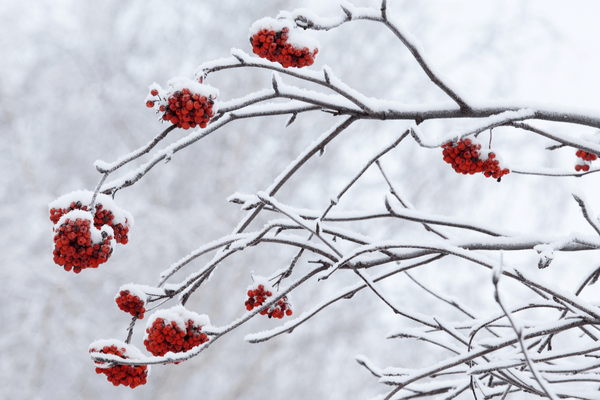Preparing Body and Mind for Winter
Winter is coming!
For some, the thought of being outside on crisp mornings or enjoying the snow, is energising. For many of us though, the thought of winter might give us the shivers or hasten a low mood in anticipation of cold nights, dark days, and cold viruses.
Winter has a bad reputation, but it’s time to think differently. We need winter more than we know. When we live, eat and exercise according to the season and pay attention to what our bodies need, we not only prepare for winter but may actually enjoy it!
Did you know for example, that the lack of sunlight during winter can make people feel more creative and closer to others? When we really slow down we can go inward, tuning in to ourselves and tuning out the outside world.
Just as the natural world withdraws and embraces the dormant season, we can also redirect our own energies. Winter is when we can hit the pause button. Our bodies need rest to fully recuperate and regenerate. Winter gives us time for reflection and time to recharge our batteries.
Although we may be aware of this, winter can still seem oppressive for so many. As practitioners we also want to be mindful of self-care, nurturing our mind-body connection, creating resilience for what’s to come, making sure we can reduce the likelihood or duration of seasonal imbalances that we’re just as susceptible to, which in turn will allow us to support our clients when they are out of balance.
A key principle of both Traditional Chinese Medicine and Ayurveda is to live in complete harmony with nature. Rising with the sun, eating what is seasonally available and having an awareness of the natural environment and its direct impact on our lives can help us to build resilient immune systems and stay healthy throughout the year.
We can do this through daily routines, harnessing our circadian rhythm, strengthening the mind-body connection and nourishing our bodies with healing foods.
Going to bed earlier, lying in, and avoiding naps during the day can certainly help you to tap into the healing effects of sleep. Getting direct sunlight exposure into your eyes helps to regularise sleep and wakefulness. It also lessens the impact of Seasonal Affective Disorder and studies are also looking into its effects on neurodegenerative diseases. Plan in a morning walk or step out at lunchtime – it’ll boost your mood and your energy levels.
Winter is a wonderful season to take the time to reflect on your life, your work and your relationships. Going inward with regular practices such as journaling, mindfulness or moving meditation such as yoga, Tai Chi or Qi Gong each help you to connect with your truth – what do you want and what might be blocking you?
When it comes to nourishing the body with food – think warm and spicy! If you do start to feel run down or are trying to ward off colds and winter viruses, the natural compounds found in herbs and spices are potent healing agents. After all, medicinal herbs and spices are one of the imperative sources of pharmaceutical drugs and you can enjoy them in their natural (and delicious) form to access the benefits.
You can easily integrate herbs and spices into your cooking to support your body to help resist or get rid of coughs, sore throats, upper respiratory infections or digestive complaints.
Try these…
Ginger – is both warming and soothing so instantly makes you feel good! It’s particuarly great for digestion and coughs and is also antimicrobial. Adding ginger to your daily diet through the winter is so beneficial. Try it in your morning hot lemon and water drink, in porridge and curries.
Turmeric – is great for supporting your immunity, preventing coughs and colds and reducing joint inflammation (some people believe chronic joint pain is linked to cold weather). Turmeric is also good for digestion and for increasing energy levels. Try it as a herbal tea, in Golden Milk – a perfect bed time drink – and again in curries
Star Anise – this packs a punch when it comes to managing a cold virus. It’s antiviral, an antioxidant, antimicrobial, antifungal, anti-inflammatory, gastroprotective, an expectorant and spasmolytic. No wonder it was used in the manufacture of Tamiflu.
Other herbs and spices great for coughs, infections and supporting your immune system include coriander, cloves and cardamon.
While the Winter season symbolises the death of the old year, by the time we get to the Solstice on 21 December it’s actually a celebration. At that point we’ll be entering a period of seasonal rebirth and we can embrace the idea that all beginnings emerge from darkness.

